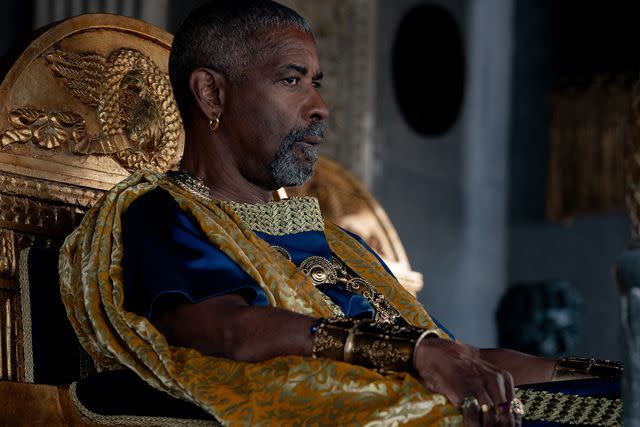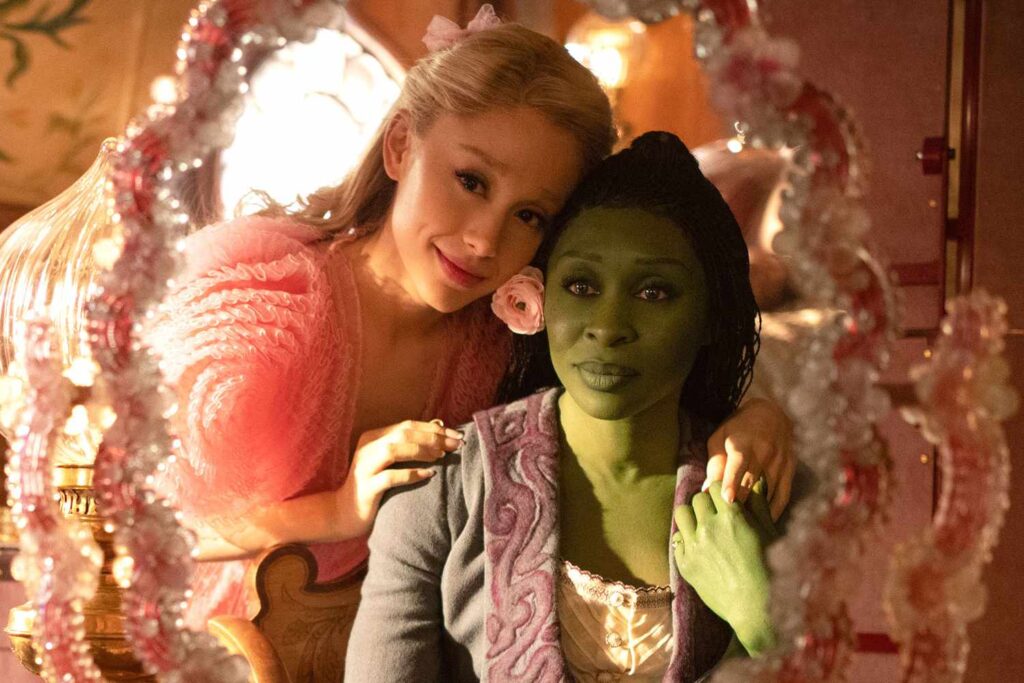These words, adopted as a saying by Lucius Verus (Paul Mescal), could also be a metaphor for filmmaking itself – the stories and achievements of cinema that are preserved for future generations. If that is the case, Ridley Scott is surely among those whose name will be etched in stone. With Gladiator II, he reminds us why, at 86, he is still one of the most inspiring filmmakers working today.
Gladiator II begins 16 years after the end of its Best Picture-winning predecessor when General Marcus Acacius (Pedro Pascal) lays siege to Lucius’s adopted home, Numidia. After being captured and enslaved, Lucius proves himself a formidable warrior in the gladiatorial arena as he first seeks revenge on Acacius and then must face his own destiny.
Scott’s sequel is the epitome of an epic, its huge sets, lavish costumes and crowd scenes bringing ancient Rome to life in all its glory. He gives the audience a spectacular feast for the eyes (and yes, that includes the toned physiques of his leading men).
Mescal is more than a worthy successor to Russell Crowe, his Roman profile giving him an aristocratic image that belies his inner strength. He carries himself with an energy that screams like a hero with a capital “H”. The paradox of his rough beauty seems tailor-made for the story of a gladiator whose most powerful weapon is hope – and Mescal delivers a movie-star performance that’s a powerful reminder of why he’s one of the most sought-after actors of his era.
His role falls to Denzel Washington’s Macrinus, a former slave turned master of gladiators. Washington turns his role into a six-course meal, relaxing into his gilt robes and stuffing rings into his fingers like the world’s most brilliant fidget-spinner. His line readings are brilliant, becoming as instantly iconic as his “King Kong’s got nothing on me.” He’s an elder statesman now, and what a joy it is to watch him fully immerse himself in a Shakespearean role.
Pascal does beautiful, noble work, his performance the most restrained in the film, giving his character a stability that contrasts with the unpredictability of the others. Joseph Quinn and Fred Hechinger are utterly insane as the twin emperors, Geta and Caracalla, their lust for blood matched only by the rottenness of their minds.
All of this is set against an epic spectacle reminiscent of the sword-and-sandal films of the 1950s and ’60s. With the benefit of advanced VFX technology, Scott has brought to life a face-off with a rhinoceros and a full-scale sea battle on the floor of the Colosseum – feats that were probably too expensive (or maybe even impossible) in 2000 when Gladiator was released.
These scenes convey the corruption and waste at the heart of Rome more effectively than any dialogue, while they remain wildly disturbing.
But, like its predecessor, what elevates Gladiator II in the cinematic arena is that its themes and dialogue underscore its outrageous spectacle. David Scarpa’s script is also extremely intelligent, a refreshing achievement in a cultural moment that can feel like a race to the bottom.
Name me more films that quote Virgil as a foreshadowing device! Scarpa and Scott trust their audience to rise to meet them, rather than trying to cater to the lowest common denominator (who will undoubtedly be pacified by the film’s abundant violence as the Romans themselves were).
There’s no denying that watching a movie about an empire on the brink of collapse — undermined by the rule of corrupt, anti-social and narcissistic dictators — affects differently in the wake of the 2024 election (though the good thing is that Caracalla’s pet monkey, Dundas, seems like a pretty good lead choice right now).
Mescal brims with a palpable rage, and it’s scary to hear Washington’s admiration for the power of male rage — and how it can be subverted in the pursuit of power and fear-based loyalty.
Yet Gladiator II is also a movie about hope, about the promise of a new Rome and a more just republic. Victory may be hard-won, drenched in blood and violence, but it’s possible. The reluctant heroism of Lucius Verus is a heroism for our time – one forged in anger and vengeance and transformed into a noble purpose.
It’s thrilling to watch that transformation, especially as he gradually takes on the role of Maximus Commodus. Scott is a master at building tension and delivering narrative consequences (all of which is made possible with the help of Harry Gregson-Williams’ brilliant score).


